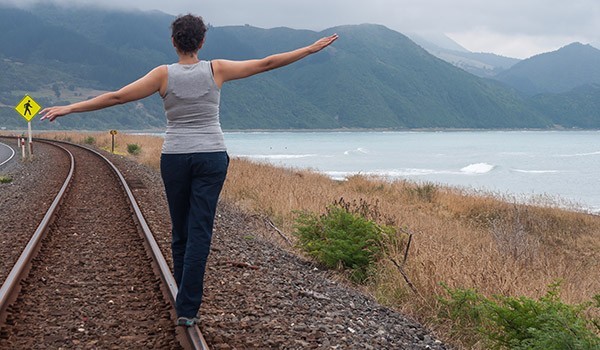
Vestibular Rehabilitation
Vestibular rehabilitation (VR) or vestibular rehabilitation therapy (VRT) is a specialized form of therapy intended to alleviate both the primary and secondary problems caused by vestibular disorders. It is an exercise-based program primarily designed to reduce vertigo and dizziness, gaze instability, to improve balance and reduce problems related to dizziness and falls.
For patients with Benign Paroxysmal Positional Vertigo (BPPV), we need to identify the type of BPPV the patient is suffering from, and then different repositioning exercises can be performed.
BPPV is a mechanical problem in the inner ear. It occurs when some of the calcium carbonate crystals (otoconia) that are normally embedded in gel in the utricle become dislodged and migrate into one or more of the 3 fluid-filled semicircular canals, where they are not supposed to be. When enough of these particles accumulate in one of the canals they interfere with the normal fluid movement that these canals use to sense head motion, causing the inner ear to send false signals to the brain.
BPPV occurs most commonly following position changing, such as lying down, turning over in bed, bending over, and looking up. A short delay, often less than 15 seconds, may follow a position change before symptoms start. This dizzy sensation, called vertigo, is brief and intense and usually lasts for about 15-45 seconds. However, symptoms may last for up to 2 minutes if the crystals become stuck to part of the inner ear. The episodes of vertigo occur frequently for weeks or months at a time. During these episodes, you may feel like the room is spinning around you, and you also may feel lightheaded, off balance, and nauseous.
The most common symptoms of a vestibular disorder are:
- Dizziness
- A sense that you or your surroundings are spinning or moving (vertigo)
- Nausea and vomiting
- Headache or migraine
- Balance problems
- Losing control of posture
- Uncoordinated, jerky limb movements
- Vertigo, or spinning sensation
- Double or blurred vision
- Motion sickness
- Frequent, unexplained falls
Vestibular disorders can be a result of or occur along with a variety of conditions, such as:
- Migraine
- Hearing loss
- Ear infections
- Concussion
Conditions Treated:
Benign Paroxysmal Positional Vertigo (positional dizziness/vertigo)
Vestibular Neuritis
Vestibular Labyrinthitis
Acoustic Neuroma
Cerebellar Degeneration
Age Related Multisensory Deficits
Uncompensated Ménières Disease
Inner ear concussion syndrome.
traumatic brain injury
Post-concussion syndrome.
